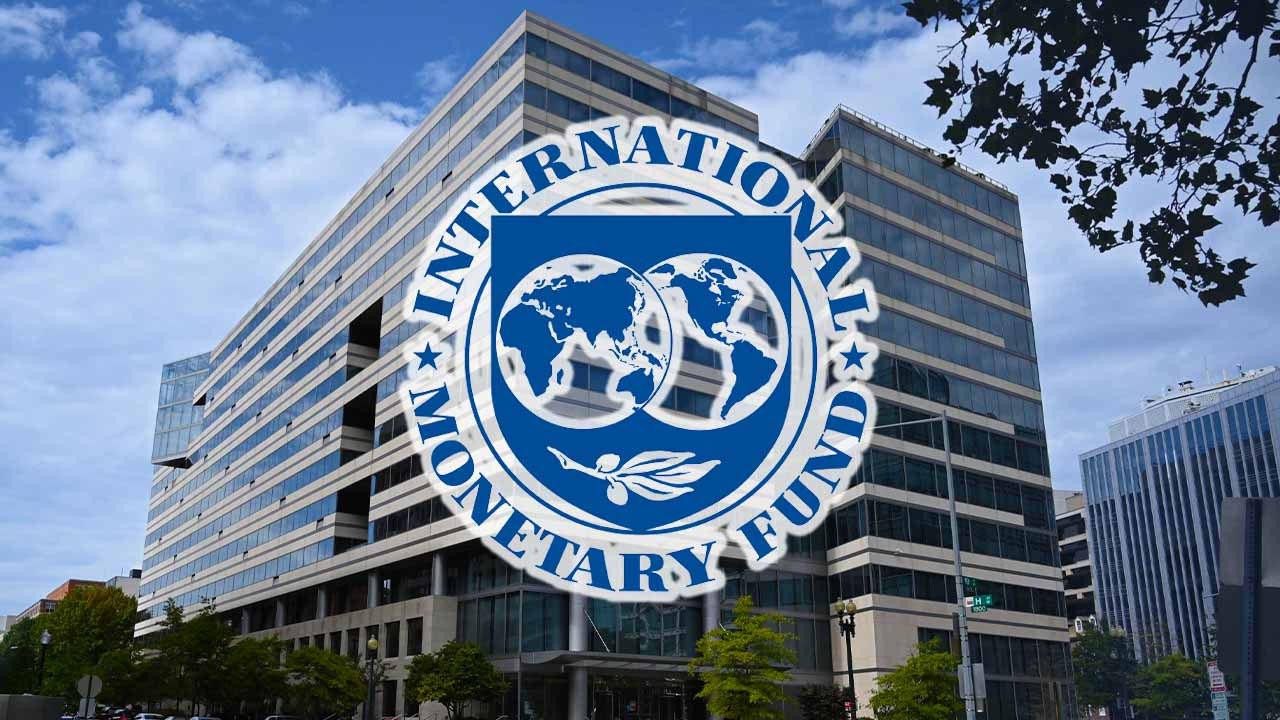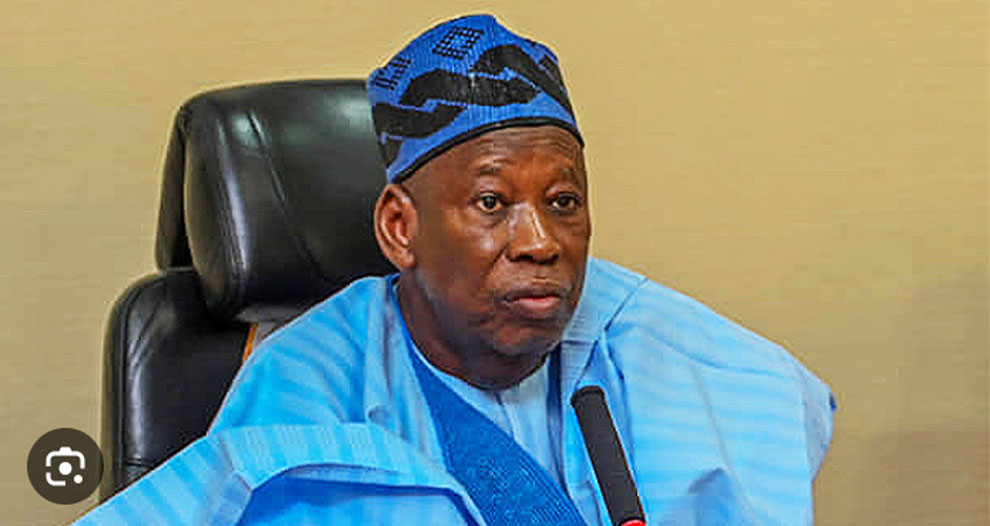News
Supreme Court Justices tackles CJN, protest lack of accommodation, vehicles

Fourteen lustices of the Supreme Court have protested the poor state of affairs in the court in a letter written to the Chief Justice of Nigeria (CJN), Tanko Muhammad.
The letter which is the first of its kind in the history of the apex court, contained the operational challenges that impair the optimal functioning of the court and efficient adjudication of cases.
A copy of the letter quoted by PREMIUM TIMES noted that the protest became necessary following the refusal of the CJN to address the issues despite drawing his attention to them.
The aggrieved justices led by the second most senior judge of the Supreme Court, Olukayode Ariwoola, listed the issues to include — vehicles, electricity tariff, supply of diesel, Internet services to (Justices’) residences and chambers, and epileptic electricity supply to the court.
Following the complaints that were raised at a March 2022 meeting “after several persistent requests to hold the meeting,” a “welfare committee” was set up to aggregate the issues.
But the justices said, “Your Lordship (the CJN) received and ignored these demands since 24th March 2022.”
According to the letter, some justices who were sworn in two years ago lack residential accommodation at the court.
“At the Justices meeting, we intimated your Lordship that some Justices sworn on the 6th day of November 2020 were yet to be accommodated by the court.
“Your Lordship promised to take up the issue that day. To date, Your Lordship has not taken any step in this direction.”
Another issue the justices raised concerns decrepit vehicles with several due for replacement, while “some of the vehicles supplied to the justices are either refurbished or substandard,” as Muhammad refused “to address this problem.”
On the issue of overseas training, the CJN was accused of gallivanting with his “spouse, children and personal staff,” while depriving the rest of the judges of the Supreme Court of such. On two occasions when the judges travelled overseas for the training, they said, they were not allowed to go with an assistant as it used to be under previous administrations.
“We demand to know what has become of our training funds. Have they been diverted, or is it a plain denial?” the justices queried.
“Your Lordship’s assumption of office Justices only attended two workshops in Dubai and Zanzibar. They were not accorded the privilege of travelling with accompanying persons as was the practice,” the letter said.
The jurists noted that despite improved budgetary allocation to the judiciary, “we find it strange that despite the upward review of our budgetary allocation, the court cannot cater for our legitimate entitlements. This is unacceptable!”
The justices decried the lack of legal research assistants, despite the magnitude of cases being adjudicated.
“We are confronted with various complex legal issues of national significance with the addition of time-bound matters coming in between our regular Court sittings. We require qualified legal assistants in order to offer our best. This demand has not been accorded any attention by the Honourable Chief Justice.”
They pointed out that “healthcare has deteriorated” with the Supreme Court’s staff clinic becoming a “mere consulting clinic,” where “drugs are not available to treat minor ailments. There is a general lack of concern for Justices who require immediate or emergency medical intervention.”
On the issue of rules of court, the justices said the CJN had withheld his assent to “Rules of Court for almost three years now,” thereby slowing justices’ productivity in dispensing with cases, adding “we strongly believe the new rules will aid speedy dispensation of justice.”
On erratic electricity supply, the justices said they have been confined to work between the “hours of 8am and 4pm daily, for lack of diesel,” after they were notified of the development by the Supreme Court’s Chief Registrar, Hajo Bello.
Lamenting the implications of Ms Bello’s memo of shutting down power supply by 4. p.m, even when justices have judgements and rulings to write outside of office hours, they said: “The implication of this memo (on power shutdown) is that the Justices must finish their work and close before 4 pm. Your Lordship with all due respect, this is the peak of the degeneration of the Court; it is the height of decadence and clear evidence of the absence of probity and moral rectitude.”
Drawing a comparison between the two other arms of government– Executive and Legislature, the justices said: “The Supreme Court is the seat of the Judiciary as an arm of government.”
Urging the CJN to take full responsibility for preserving the dignity of the apex court, the justices said: “We must not abandon our responsibility to call Your lordship to order in the face of these sad developments that threaten our survival as an institution. We have done our utmost best to send a wake-up call to Your Lordship. A stitch in time saves nine.”
They added that should Mr Muhammad fail to address their concerns, “we will be compelled to (take) further steps immediately. May this day never come.”
Those who signed the letter are Olukayode Ariwoola, Musa Dattijo Mohammed, Kudirat Motonmori O. Kekere-Ekun, and John Inyang Okoro
Others are Chima Centus Nweze, Amina Adamu Augie, Uwani Musa Abba-Aji, Mohammed Lawal, Helen Moronkeji Ogunwumiju, Abdu Aboki, Ibrahim Saulawa, Adamu Jauro, Tijjani Abubakar and Emmanuel Agim.
News
IMF predicts 3.3% growth for Nigeria’s economy in 2024

IMF predicts 3.3% growth for Nigeria’s economy in 2024
The International Monetary Fund (IMF) has adjusted upwards it’s forecast for Nigeria’s economic growth for the year 2024 to 3.3 percent.
This revision was announced in the IMF’s World Economic Outlook for April, which was released on Tuesday during the 2024 Spring Meetings of the World Bank and IMF in Washington, United States.
The updated forecast marks an increase of 0.3 percentage points from the previous 3.0 per cent growth prediction published in the IMF’s January 2024 World Economic Outlook.
However, the IMF has taken a more conservative stance for the year 2025, reducing Nigeria’s economic growth forecast to 3.0 per cent, a slight decrease from the 3.1 percent projected earlier in January.
Within the broader Sub-Saharan Africa region, the IMF has maintained its 3.8 per cent economic growth forecast for 2024 but has revised the 2025 forecast downward to 4.0 per cent, from the previously projected 4.1 percent.
READ ALSO:
- Suspected herdsmen kill 28 in fresh attack on Benue community
- Naira abuse: EFCC moves against Cubana chief priest
- Breaking: Dangote brings diesel prices down to N1000/litre
The global economic outlook also received a modest boost, with the IMF raising its growth forecast for 2024 to 3.2 percent, up from the 3.1 percent projected in the January 2024 World Economic Outlook. The forecast for 2025 remains unchanged at 3.2 percent.
The IMF stated, “Global growth, estimated at 3.2 per cent in 2023, is projected to continue at the same pace in 2024 and 2025.
“The projection for 2024 is revised up by 0.1 percentage point from the January 2024 WEO Update and by 0.3 percentage point to the October 2023 WEO forecast. Nevertheless, the projection for global growth in 2024 and 2025 is below the historical (2000–19) annual average of 3.8 per cent, reflecting restrictive monetary policies and withdrawal of fiscal support, as well as low underlying productivity growth.
The report further elaborates on the expected trends in various economies.
“Advanced economies are expected to see growth rise slightly, with the increase mainly reflecting a recovery in the euro area from low growth in 2023, whereas emerging market and developing economies are expected to experience stable growth through 2024 and 2025, with regional differences.”
Specifically for sub-Saharan Africa, the IMF projects an increase in growth from an estimated 3.4 per cent in 2023 to 3.8 per cent in 2024 and 4.0 per cent in 2025.
This positive outlook is attributed to the diminishing impact of previous weather shocks and gradual improvements in supply issues.
The forecast for 2024 remains consistent with the January 2024 WEO update, as negative adjustments for Angola due to a contraction in the oil sector are largely balanced by positive revisions for Nigeria.
IMF predicts 3.3% growth for Nigeria’s economy in 2024
News
Naira abuse: EFCC moves against Cubana chief priest

Naira abuse: EFCC moves against Cubana chief priest
The Economic and Financial Crimes Commission (EFCC) will, on Wednesday, arraign Pascal Okechukwu, aka Cubana Chief priest, over alleged naira abuse.
This comes few days after popular cross-dresser, Idris Okuneye aka Bobrisky, bagged a six-month jail term over naira abuse.
According to the anti-graft agency, Cubana Chiefpriest will appear before the Federal High Court in Lagos for spraying and tampering with the naira.
This was contained in charge sheet filed on April 4, 2024, by EFFC’s prosecutor Rotimi Oyedepo (SAN) alongside seven other lawyers representing the chairman of the anti-graft agency.
READ ALSO:
- Breaking: Dangote crashes price of diesel further
- Kano anti-corruption agency slams fresh charges against Ganduje
- Troops kill ISWAP Commanders, 30 other terrorists
It reads: “That you, Okechukwu Pascal on 13th Feb. 2024, at Eko Hotel, within the jurisdiction of the court, while dancing during a social event, tampered with funds in the denomination of N500 (Five Hundred Naira) issued by the Central Bank of Nigeria by spraying same for two hours, and you thereby committed an offence, contrary to and punishable under Section 21(1) of the Central Bank Act 2007”.
Cubana Chief Priest: Exhibit 1. pic.twitter.com/AV9RfemO5l
— YabaLeftOnline (@yabaleftonline) April 16, 2024
“That you Okechukwu Pascal sometime in 2020, in Lagos during a social event, tampered with funds in the denomination of N500 (Five Hundred Naira) issued by the Central Bank of Nigeria by spraying same for two hours, and you thereby committed an offence, contrary to and punishable under Section 21(1) of the Central Bank Act 2007.”
”That you Okechukwu Pascal sometime in January 2024, in Lagos during a social event, tampered with funds in the denomination of N500 (Five Hundred Naira) issued by the Central Bank of Nigeria by spraying same and you thereby committed an offence, contrary to and punishable under Section 21(1) of the Central Bank Act 2007.”
EFCC is arraigning Cubana Chief Priest on a three count charge of mutilating the Naira. I guess we are moving towards equity in Nigeria finally pic.twitter.com/FL0K9B5thi
— Dr Penking™🇳🇬🇦🇺 (@drpenking) April 16, 2024
Naira abuse: EFCC moves against Cubana chief priest
News
Kano anti-corruption agency slams fresh charges against Ganduje

Kano anti-corruption agency slams fresh charges against Ganduje
The Kano State Anti-Corruption and Public Complaints Commission has filed a fresh corruption charges against former Governor of Kano Abdullahi Ganduje.
The commission’s chairman, Muhuyi Magaji disclosed this in an interview on Channels Television’s Sunrise Daily programme on Tuesday.
According to Magaji, investigations uncovered the diversion of N51.3 billion from local government funds to unauthorized individuals during Ganduje’s tenure.
Magaji alleged that the Ganduje administration withdrew N1 billion monthly from state coffers before its tenure ended in May 2023, purportedly for road renovation, but diverted to Bureau de Change operators instead.
READ ALSO:
- Troops kill ISWAP Commanders, 30 other terrorists
- Ooni of Ife dismisses agitators of Yoruba nation
- DSS operatives beat, harassed me – El-Rufai’s loyalist
He also cited a case involving N4 billion transferred to an agricultural company from Kano’s consolidated revenue account.
“What is happening now is a tip of the iceberg. As I am talking to you, we are investigating a case whereby N51.3bn local government funds were directly taken from the government coffers (and) sent to other individuals, and we traced it to people.
“We have filed a series of cases. We have a case whereby N1bn in April last year (2023) was removed from government coffers under the allocation of renovating 30 roads in the metropolis, and it was taken away and sent to Bureau de Change.
“We have a case of N4bn whereby it was sent from the consolidated revenue account of Kano State to an agricultural company. All these cases are before the court,” he said.
Recall that the state government has said it will arraign Ganduje, alongside his wife and son, for money laundering, later this week.
Kano anti-corruption agency slams fresh charges against Ganduje
-

 metro7 days ago
metro7 days agoTribute: C.K George, Epitome of Courage, by Kunle Awobodu
-

 metro6 days ago
metro6 days agoTroops arrest ISWAP commander involved in Army General, 3 soldiers’ killing in Borno
-

 News5 days ago
News5 days agoBREAKING: Ex-Abia gov, Ogbonnaya Onu, is dead
-

 metro7 days ago
metro7 days agoBandit kingpin, Dangote, siblings killed in Katsina
-

 News6 days ago
News6 days agoBetta Edu threatens to sue BBC, alleges defamation
-

 News6 days ago
News6 days agoI never said Aiyedatiwa is Tinubu’s preferred candidate in Ondo – Interior Minister
-

 metro6 days ago
metro6 days agoJUST IN: Actor Junior Pope resuscitated after death scare
-

 metro6 days ago
metro6 days agoPolice arrest female kidnapper in Ebonyi, rescue six abducted children
















